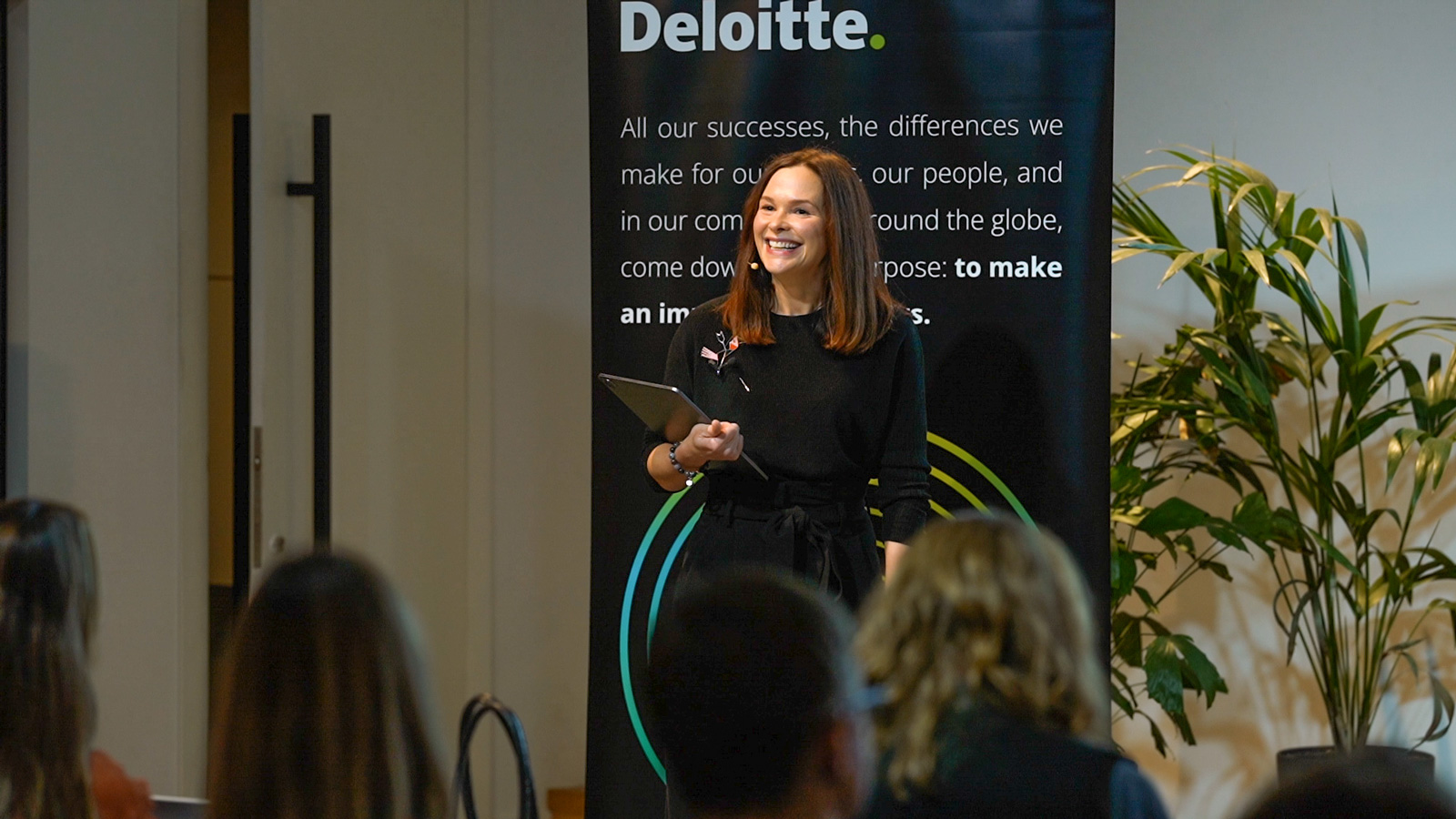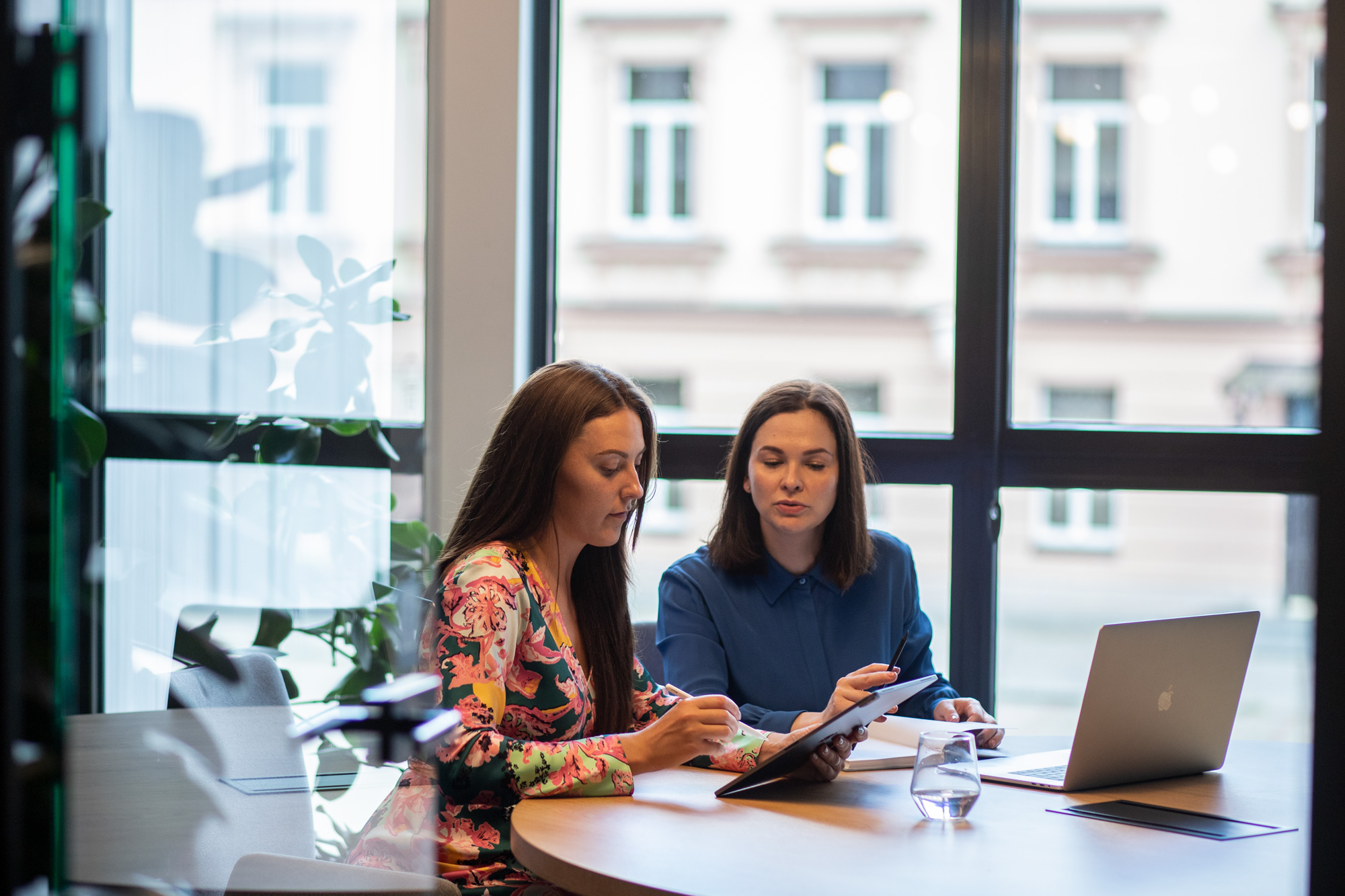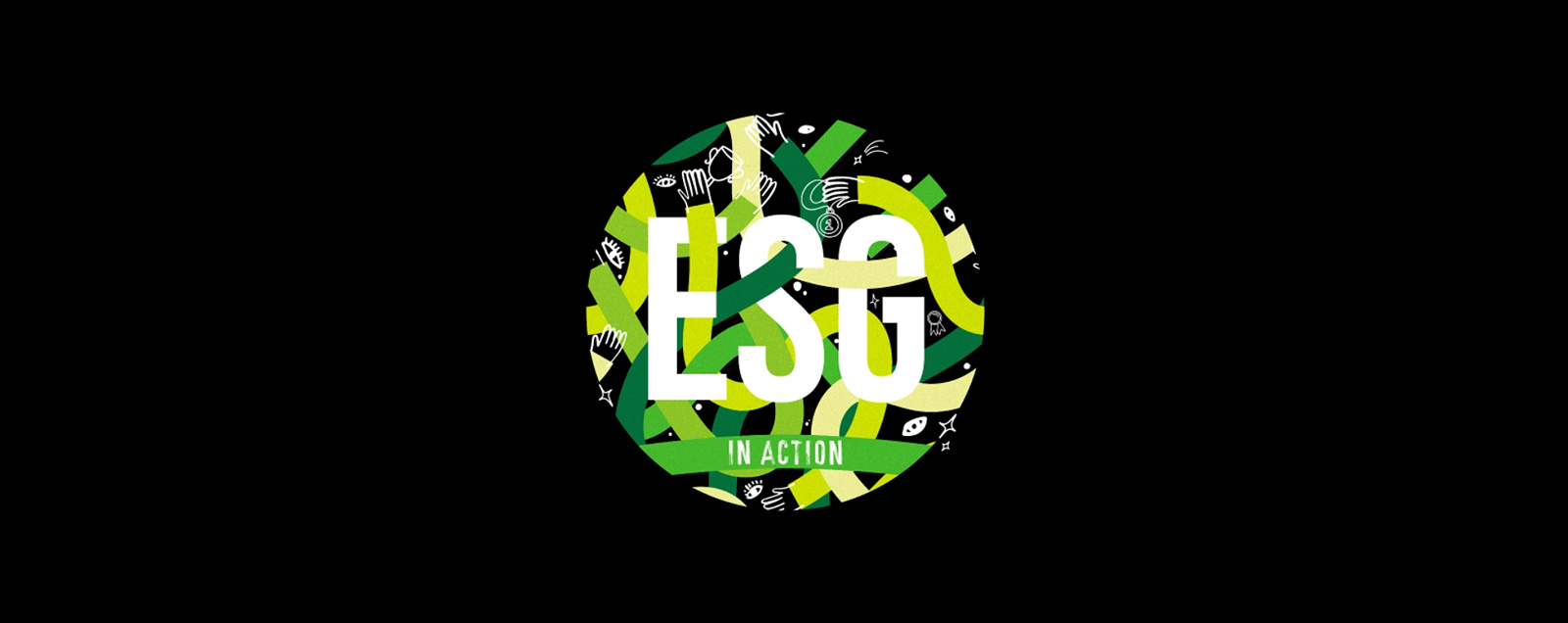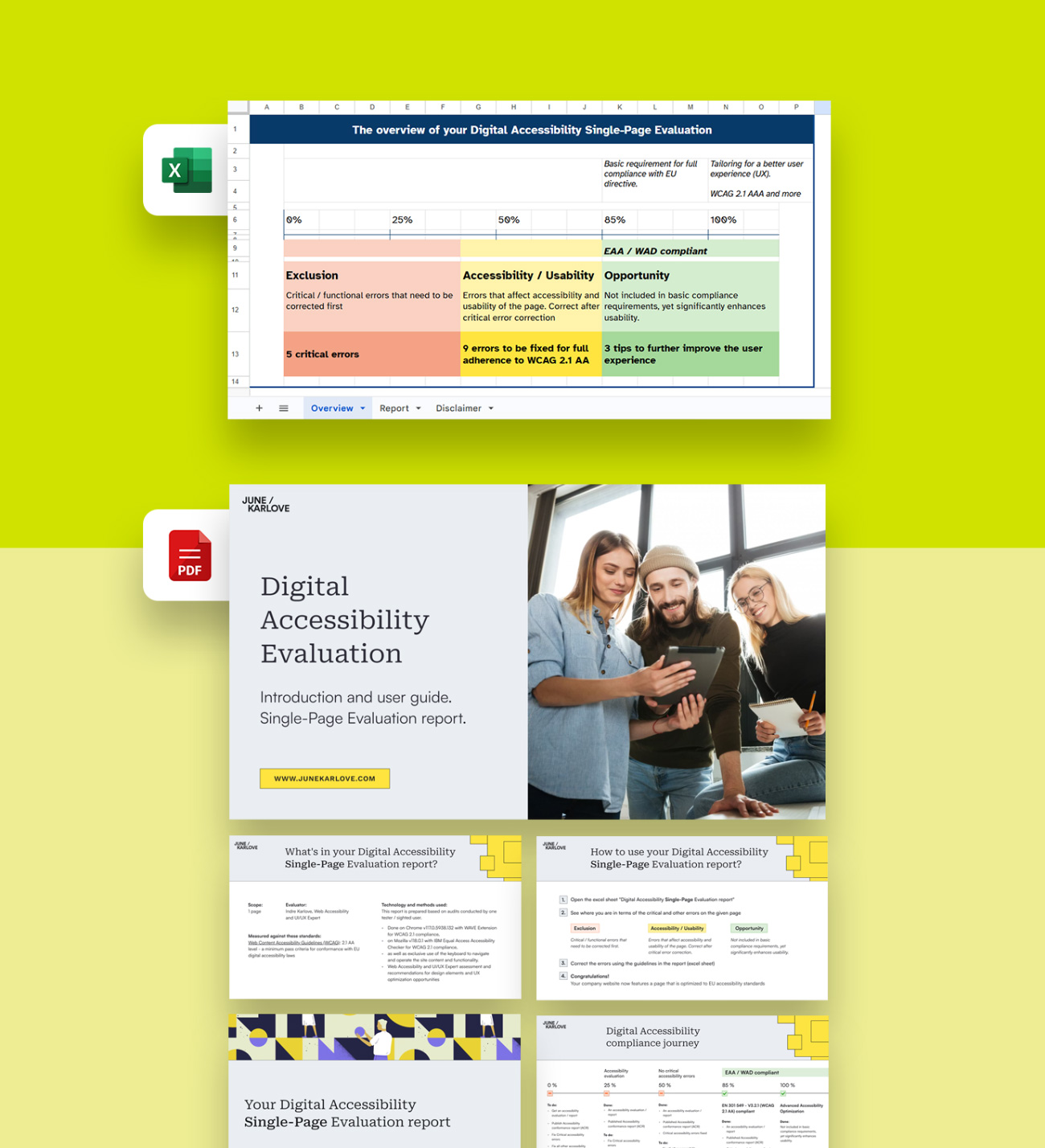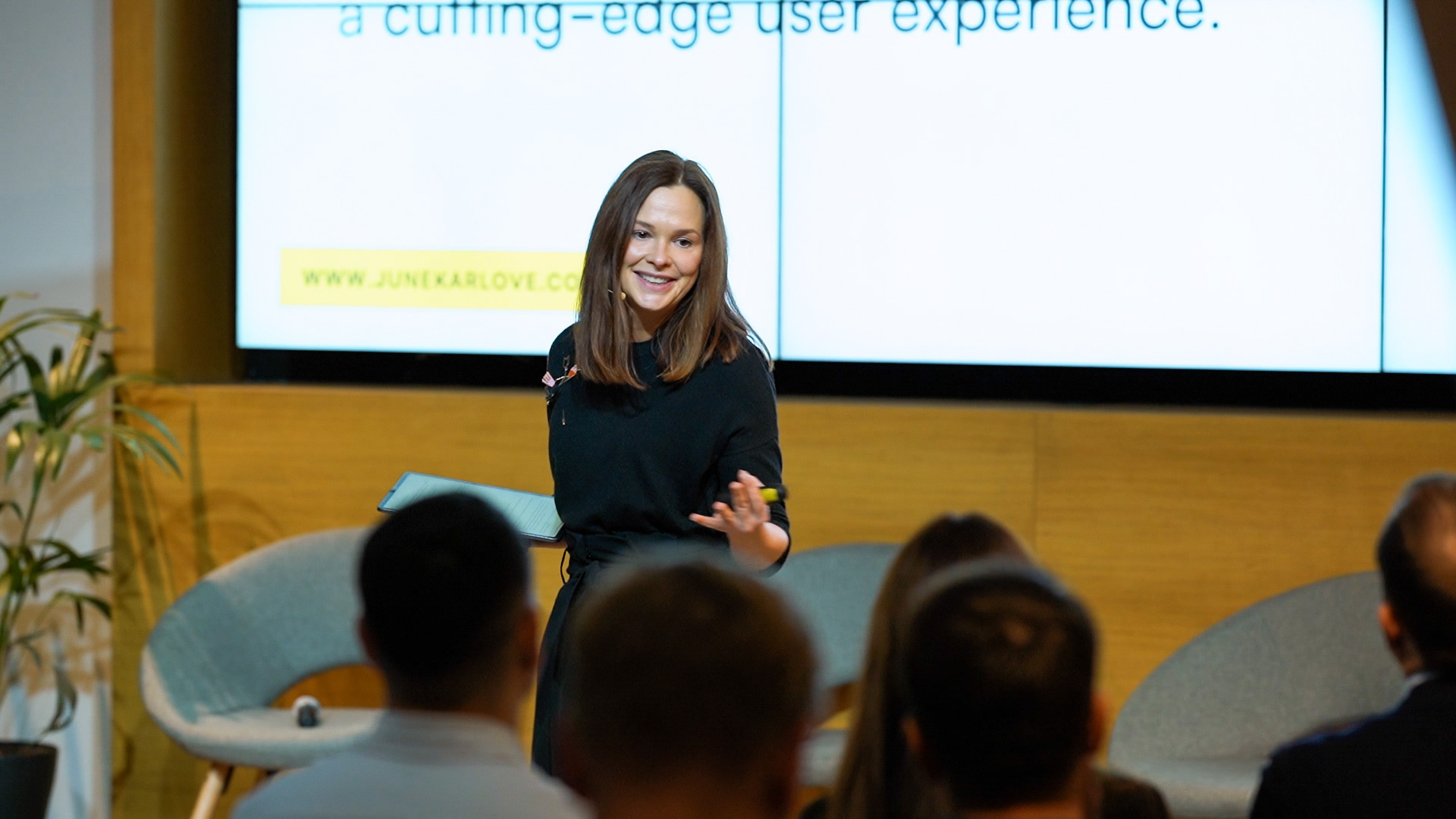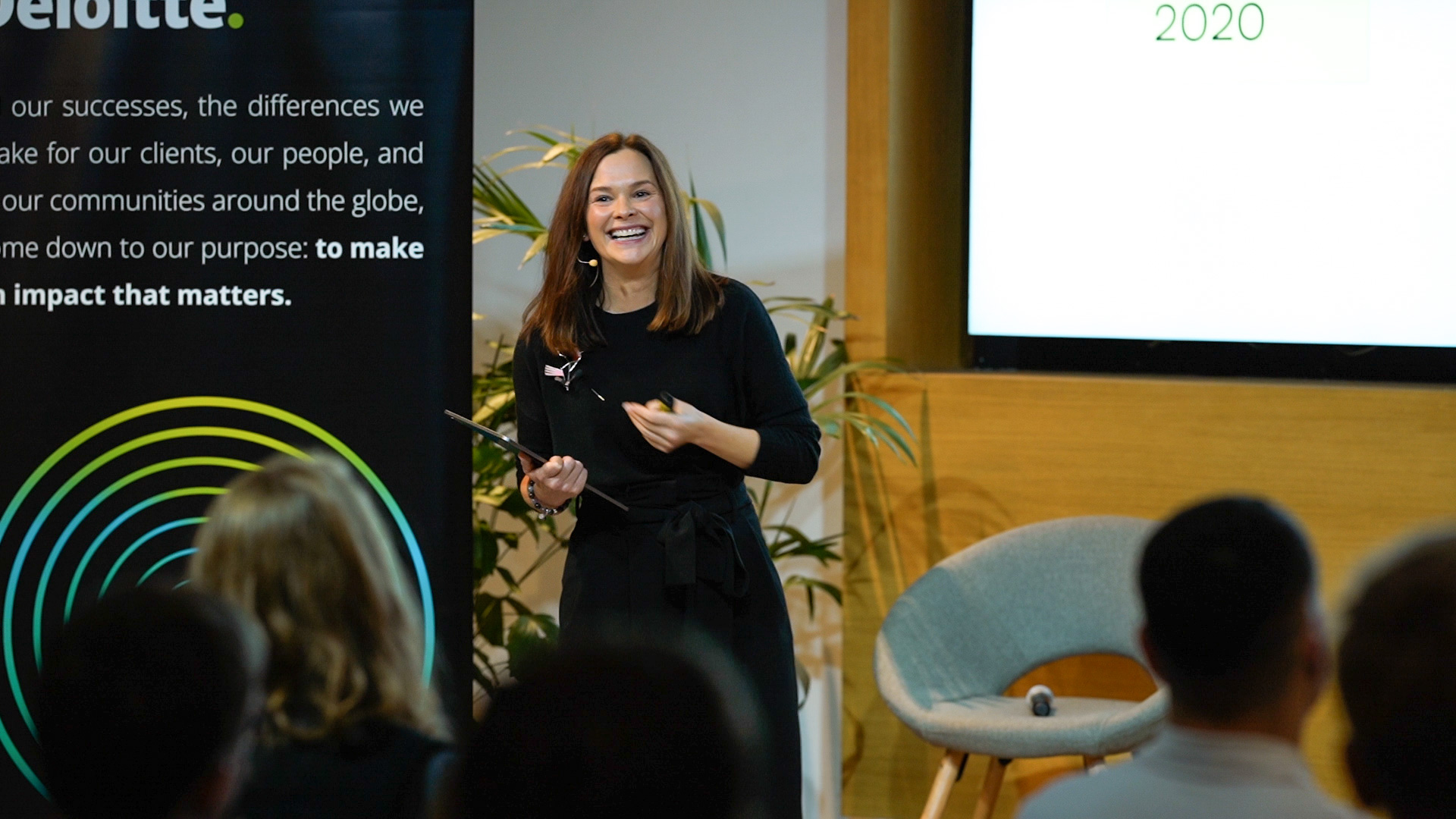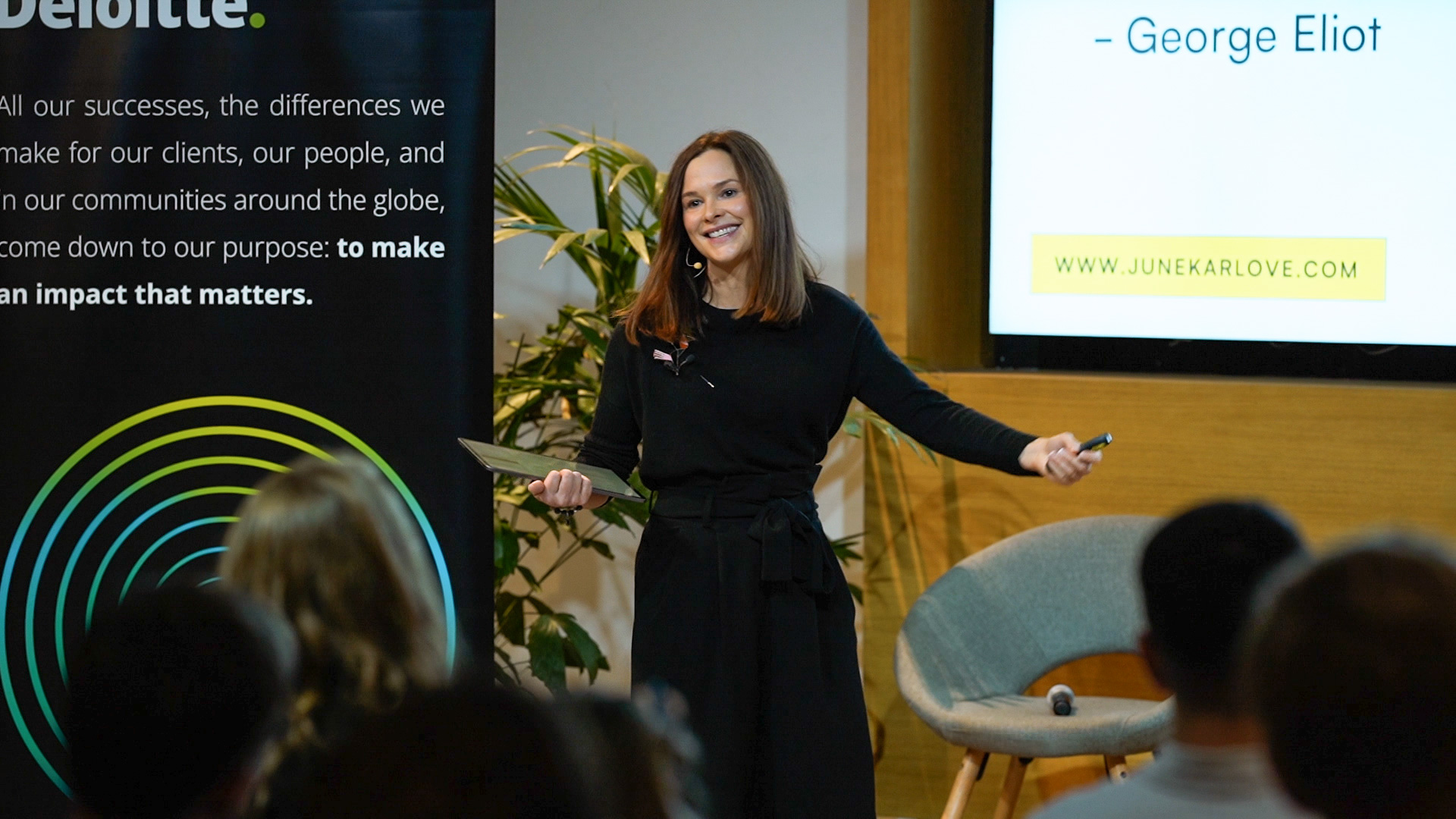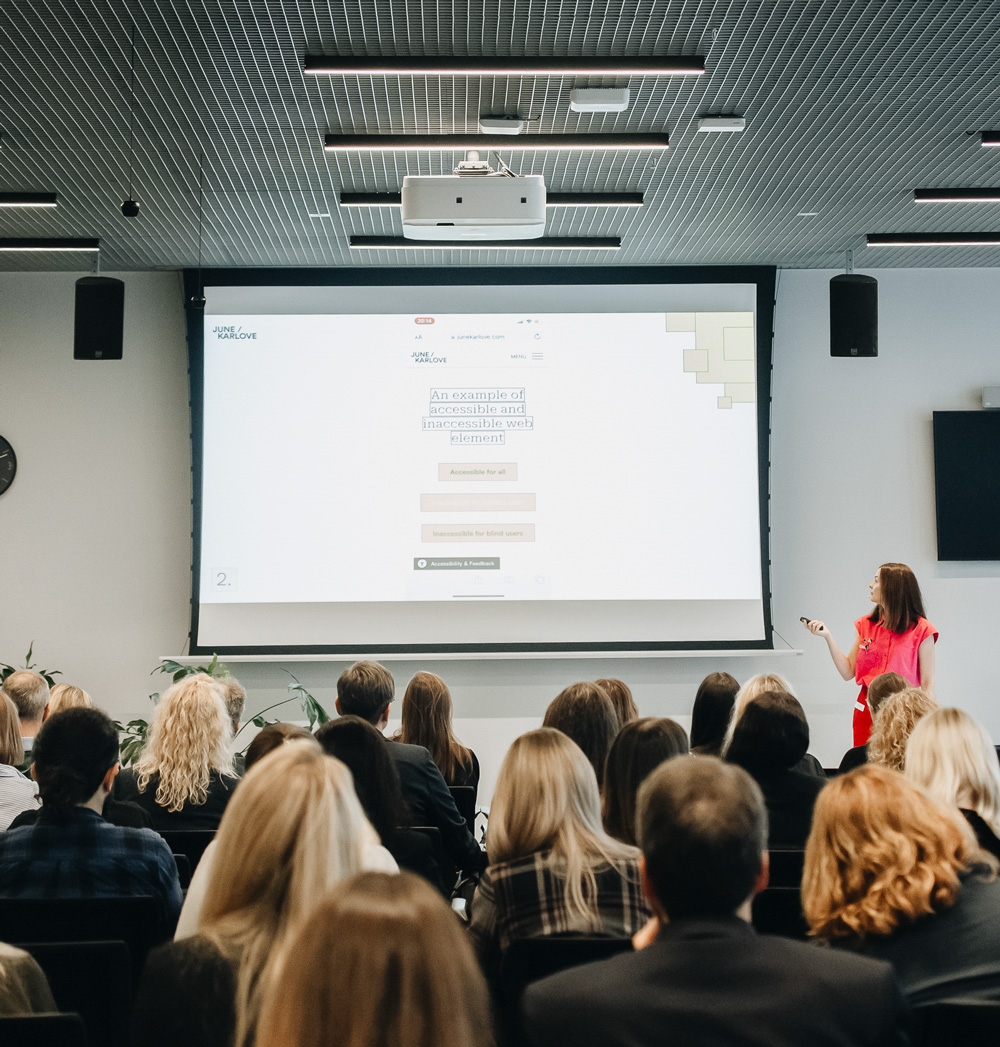ESG in Action 2023 – bringing digital accessibility to the ESG conversation
In November 2023, we joined Deloitte Baltics for their ESG in Action contest — a high-profile initiative celebrating how ESG (Environmental, Social, and Governance) values are put into practice by 31 of the largest companies in the Baltics. Our role was twofold: to give every participant a personalised snapshot of their digital accessibility and to inspire them to see accessibility as a powerful part of the ESG social (S) dimension.
With the European Accessibility Act (EAA) set to take full effect by June 2025, the timing was critical. Companies needed to act now to make sure their digital products and services could be used by everyone — including people relying on assistive technologies.
About ESG in Action
The ESG in Action contest recognises companies that not only talk about ESG but actively integrate it into strategy, operations, and culture. Participants submit real-world initiatives demonstrating measurable impact in one or more ESG pillars. A jury of experts evaluates these initiatives on innovation, results, and long-term value, selecting winners whose actions stand out as ambitious, effective, and replicable.
While many ESG initiatives focus on environmental impact or corporate governance, accessibility is a powerful — and often overlooked — way to deliver social value. Our role was to make that social dimension visible and actionable.
How we approached it
Our contribution unfolded in three complementary parts. First, we gave every contestant a tangible, hands-on takeaway — a rapid accessibility check of their homepage. Second, we used the keynote stage to expand the conversation, showing how accessibility could move from a compliance exercise to a strategic advantage deeply connected to ESG’s social pillar. And third, we provided the winning company with a dedicated one-on-one consultation, mapping their specific accessibility requirements, identifying the most impactful next steps, and setting a clear direction for implementation.
One-page accessibility checks for every participant
As a gift to all 31 participating companies, we carried out rapid accessibility audits of each homepage, evaluating them against the Web Content Accessibility Guidelines 2.1 (WCAG). Rather than delivering lengthy, jargon-heavy reports, we created clear, one-page Audit & Remediation Sheets in a filterable Excel format — making it easy for product, design, development, and content teams to sort, prioritise, and act on the findings.
Each sheet detailed the issues we detected, the severity of each, the recommended order for addressing them, and practical technical suggestions for remediation. To ensure teams could put the results into action, we also provided a short “audit use guide” — explaining the principles of accessibility, outlining the relevant laws, showing why accessibility matters, and demonstrating how to use the document effectively.
By the end, every participant left the contest not only with recognition for their ESG efforts but also with a clear, actionable starting point for improving digital inclusion.
Inspiring from the stage
While the audits gave companies a concrete tool, the keynote aimed to shift perspectives. At the awards event, we delivered Digital Accessibility as a Catalyst for Tech and Business Evolution — a talk designed to connect accessibility directly to ESG’s social dimension and inspirelong-term change.
We spoke about accessibility not as a box-ticking exercise, but as a driver of innovation, better user experiences, and stronger ESG alignment. Together, we explored:
- What digital accessibility really means (beyond the basics)
- How it strengthens the social core of ESG strategies
- What the European accessibility directives require in practice
- Why an Accessibility Conformance Report (ACR) is a powerful operational tool
- How to measure and grow accessibility maturity across an organization
Going further with the winner
For the contest’s winning company, our work went deeper. In a dedicated one-on-one consultation, we reviewed their specific accessibility requirements, explored the most impactful next steps, and helped them set a clear direction for implementation. This personalised approach meant the winner could immediately start integrating accessibility improvements into their operations with clarity and confidence.
What changed
For many participants, this was their first practical encounter with accessibility as a strategic business issue. They left not only with recognition for their ESG initiatives, but also with a personalised, actionable roadmap to improve digital inclusion.
Because accessibility isn’t just about meeting regulations. It’s about readiness, resilience, and reach.
In a contest dedicated to real-world ESG action, we helped ensure that digital inclusion was part of that action.


